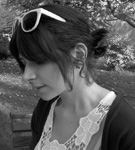 This past week was a very interesting experience for me: Between December 10 and 16, I attended a film journalism workshop held by Nisi Masa Turkey, part of the large European network of "young cinema," as they describe themselves. We were in collaboration with the Festival on Wheels that stayed in Ankara for a week (hopefully with your participation) and then moved to Artvin for the first time, now in its 15th year. In our workshop we publish the daily newspaper of the festival, which contains critiques about films of the day, interviews with filmmakers, critics and actors, and more specific articles focusing on one particular director or a common theme in various films. While doing this, we were confined by time, space and the acceptable pressure of creating valuable work. Every afternoon, we delivered a fresh paper to the excited festival audiences of Artvin, who largely benefit from the opportunity of the free screenings of Turkish and foreign films, some old and others new, all artistic and intelligent works of cinema-unlike blockbuster movies. With the relocation of the festival, Artvin won a brand new cinema hall that will, as promised by the local authorities, screen films regularly. This past week was a very interesting experience for me: Between December 10 and 16, I attended a film journalism workshop held by Nisi Masa Turkey, part of the large European network of "young cinema," as they describe themselves. We were in collaboration with the Festival on Wheels that stayed in Ankara for a week (hopefully with your participation) and then moved to Artvin for the first time, now in its 15th year. In our workshop we publish the daily newspaper of the festival, which contains critiques about films of the day, interviews with filmmakers, critics and actors, and more specific articles focusing on one particular director or a common theme in various films. While doing this, we were confined by time, space and the acceptable pressure of creating valuable work. Every afternoon, we delivered a fresh paper to the excited festival audiences of Artvin, who largely benefit from the opportunity of the free screenings of Turkish and foreign films, some old and others new, all artistic and intelligent works of cinema-unlike blockbuster movies. With the relocation of the festival, Artvin won a brand new cinema hall that will, as promised by the local authorities, screen films regularly.
The workshop has given me a lot. It allowed me to observe and participate in the anxious process of publishing a daily; to meet a lot of people, including future friends and professional film critics; to write about films and have my articles evaluated by people of different backgrounds. But the greatest aspect of this experience was getting to visit Artvin and know its people. Since our office was located at the town center and we had to work for a long time everyday, I didn't have the chance to see a lot of places (unlike fellow classmates Alev Dešim and Neslim Cansu Çavužošlu, who shot wonderful moments for their Docutravel documentary-making workshop). But even though I couldn't travel around town, I was able to see what was happening at the cinema hall and at the festival in general. The local people, from all demographic and social backgrounds, were thrilled by the mood that the festival brought. There were usually queues for every screening and the audience was very eager to ask questions to the directors and actors after the films.
These all reminded me of, maybe for the 100th time, the power and charm that cinema holds. A mixture of light and darkness; of the colorful and the monochrome; of the familiar and unfamiliar; of sound, noise and silence; of all binary oppositions and what's between them, only cinema would be able to bring, for example, a Brazilian film director, a high school boy from Artvin, a prominent Turkish critic and me under the same roof with our eyes fixed on the screen, wondering what would happen next. I'm not saying that things went smoothly and everyone was happy with or learned from, say, works of Luis Bunuel, Zeki Demirkubuz and Ken Loach, to name a few of the directors in the programme. There were, of course, many times that the films and our newspaper were too advanced to be understood by some audiences; but that's only normal because understanding films only comes with watching more and more films and thinking about them. So, the people of Artvin have made a good start. The festival aroused people's interests and now their perception and hopes have arisen. Both the guests and the hosts of the festival are in high hopes that Artvin will continue harboring the festival.
And, by the way, in case you are curious about what we published in our newspaper, Nisimazine Artvin, please see the issues found at this link, and feel free to e-mail me about your thoughts: http://www.gezicifestival.org/gezici_festival.aspx?page=nisimazine By Damla Okay (COMD/V)
 |







